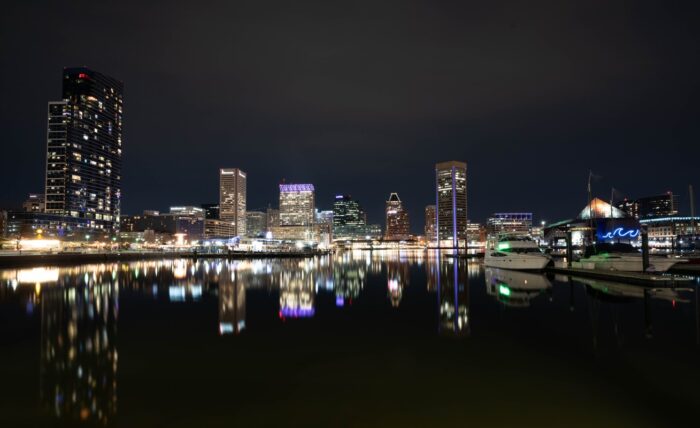The Port of Baltimore Has Reopened: Here’s What You Need to Know
Get a QuoteNearly three months after the catastrophic accident that caused the collapse of the Francis Scott Key bridge, the Port of Baltimore fully reopened on Monday, June 12.
Portions of the deep-draft channel had already reopened in phases, restoring some commercial traffic in recent weeks. Some cruise ships and large container ships have already passed through. Now that the port has fully reopened, authorities anticipate commercial shipping traffic will soon return to pre-accident levels.

“They are back open for business, ready to bring in the largest container ships that call there,” U.S. Coast Guard Rear Admiral Shannon Gilreath said during a virtual press briefing Tuesday afternoon.
The cargo ship Dali crashed into a critical support column of the Francis Scott Key Bridge in the early hours of March 26, collapsing the span and killing six members of a roadwork crew. The ship remained stuck amid the wreckage for almost two months, with a massive steel truss draped across its damaged bow. On May 20, it was refloated and guided back to port.
Losing the Port of Baltimore, the 11th-largest port in the United States, was a difficult blow to the commercial shipping industry. Maryland Governor Wes Moore said more than 52 million tons of foreign cargo worth $80 billion were transported out of the port last year. Immediately following the accident, cargo vessels were rerouted to other ports along the Eastern Seaboard. Traffic increased in nearby ports like New York and Norfolk, leading to congestion and delays.
Fortunately, Interstate International was well-equipped to provide clients with the same tremendous service during this crisis. The Interstate approach to project cargo and freight forwarding relies on transparency. Interstate also utilizes the finest network of partners in the industry. We give our partners a seat at the table. You get to know the associate companies who work with us to move your cargo around the globe. You’ll have open lines of communication throughout the supply chain.
Ruth Moritz, Vice President and General Manager of Global Relocation, outlined Interstate’s plan for guiding clients through the Baltimore port crisis. “We worked closely with port operators on a daily basis to make real-time assessments to capabilities, strategically rerouting shipments based upon client needs and delivery date requirements,” said Moritz. “Leveraging our partnership with ground, rail and alternative port authorities ensured minimal disruption to our service offering.”
The Baltimore incident was the second major world event to affect global shipping in 2024. Global shipping has largely adjusted to disruptions from Houthi rebel attacks on vessels in the Red Sea. The attacks, which started amid the Israel-Hamas war, have forced ships to take the longer route around the Cape of Good Hope at the southern tip of Africa and required more ships to sail more often.
No matter the crisis, Interstate International remains dedicated to its core philosophy of transparency and reliability. With Interstate, you’ll always have access to the most reliable and cost-effective shipping options, whatever they may be.
